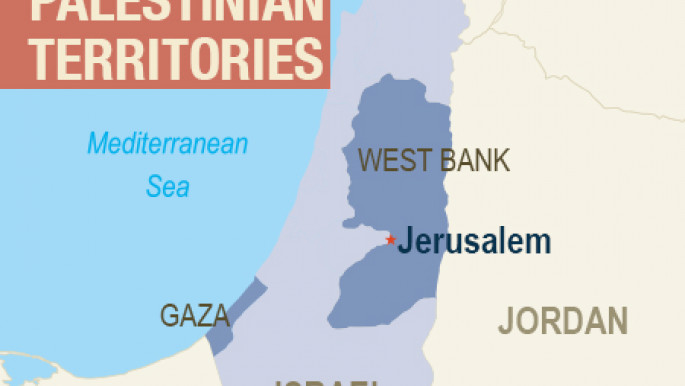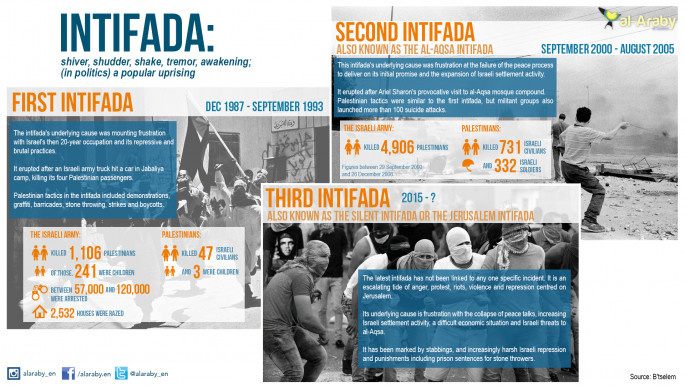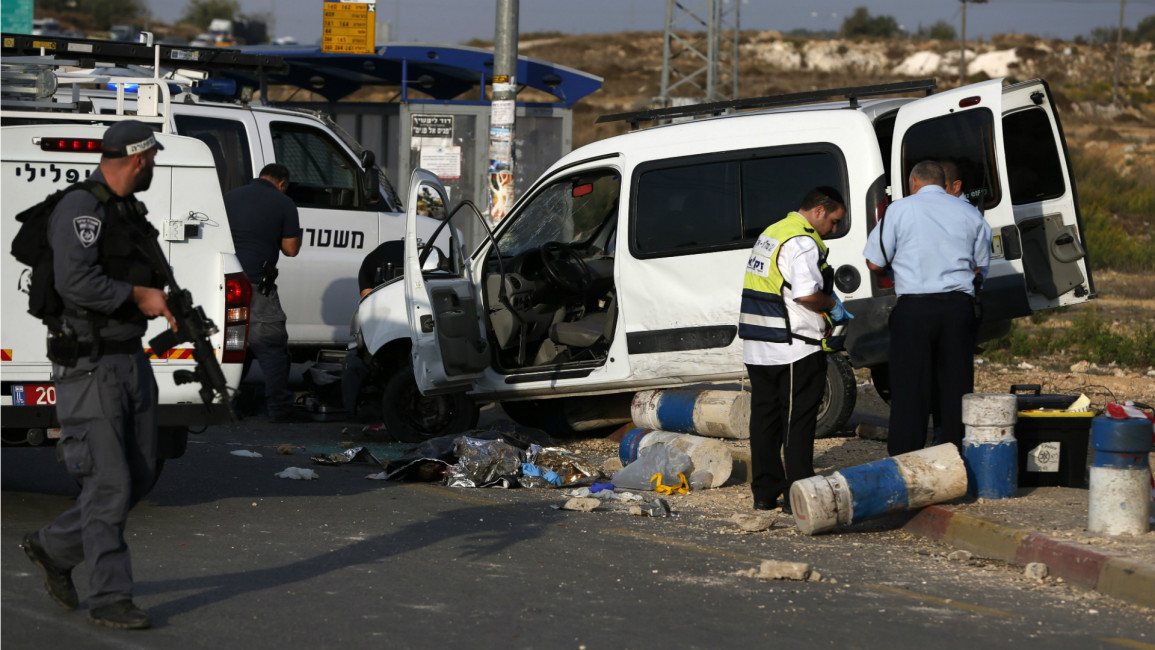UN chief urges calm amid Israeli-Palestinian violence
UN Secretary-General Ban Ki-moon called for calm during a surprise visit to Jerusalem on Tuesday ahead of meetings with Israeli and Palestinian leaders, in a high-profile gambit to bring an end to a monthlong wave of violence.
The visit comes amid unrest that erupted a month ago over tensions surrounding a Jerusalem holy site sacred to Jews and Muslims.
It soon spread to Arab neighbourhoods of East Jerusalem and then to the West Bank, Gaza and Israel.
 |
|
The violence continued on Tuesday.
Palestinian medical sources reported that a 27-year-old Palestinian protester was shot dead by Israeli forces, during clashes along the Gaza border fence in the northern Strip, close to al-Bureij refugee camp. An additional three demonstrators were reported wounded.
Another Palestinian was shot dead after allegedly attempting to ram his car into a group of Israelis waiting at a bus stop at Gush Eztion Junction, on the outskirts of Jerusalem in the West Bank, the Israeli military said.
A civilian and a soldier were injured in the attack before the Palestinian was shot and killed.
Earlier, a 23-year-old Palestinian was shot dead by Israeli forces after he allegedly stabbed and lightly wounded an Israeli military officer around the Beit Awwa area, in southern West Bank.
At least 43 Palestinians have now been killed in the upsurge in violence since the start of the month, including alleged "attackers". Ten Israelis have died.
'No society should live in fear'
Ban arrived from Europe Tuesday afternoon and is set to meet with Palestinian President Mahmoud Abbas in the West Bank and Israeli Prime Minister Binyamin Netanyahu.
He called for calm during a press conference with Israeli President Reuven Rivlin and said "no society should live in fear."
"My visit reflects the sense of global alarm at the dangerous escalation in violence between Israelis and Palestinians," he said. "I am here to encourage and support all efforts to lower tensions and prevent the situation from spinning out of control."
Ban added, "It's not too late to avoid a broader crisis."
Prior to the visit, Ban issued a video message late Monday calling for calm on both sides.
He said he understood the Palestinians' frustrations, but that violence would only harm their legitimate aspirations.
"I know your hopes for peace have been dashed countless times. You are angry at the continued occupation and expansion of settlements," he said. "I am not asking you to be passive, but you must put down the weapons of despair."
Addressing Israelis, he said he understood their fears due to the security deterioration, but said there was no military solution.
"When children are afraid to go to school, when anyone on the street is a potential victim, security is rightly your immediate priority," he said. "But walls, checkpoints, harsh responses by the security forces and house demolitions cannot sustain the peace and safety that you need and must have."
Heavy security amid continued violence
Israel took further steps Tuesday as it sought to deter violence and tamp down what it sees as incitement, destroying the home of a jailed Palestinian attacker in the West Bank and arresting a senior Hamas official.
Last week, the Israeli government ordered an intensification of punitive home demolitions in response to the wave of unrest.
It says the controversial policy acts as a deterrent but critics say the main victims of such demolitions are relatives forced to pay for another person's actions.
Videos of Israeli security forces shooting dead alleged attackers that have spread online have also fed unrest, with Palestinians seeing some of the shootings as unjustified.
At the same time, the gun, knife and car attacks have sparked fear among Israelis, and some politicians have urged residents to arm themselves in the face of the violence.
Human rights activists blamed such comments in part for an incident on Sunday night, when an Eritrean man was mistaken for an attacker and killed in the southern Israeli city of Beersheba.
The mob violence came after a Palestinian Israeli gunman, also armed with a knife, stormed a bus station, shooting dead an Israeli soldier and wounding around 10 others.
The gunman was killed, while a security guard at the bus station shot the 29-year-old Eritrean thinking he was a second attacker. A mob also beat him, and the man died later.
Netanyahu warned Israelis against vigilantism after the incident, saying no one should "take the law into their own hands".
Home demolitions continue
| Israeli soldiers arrested one of the top West Bank leaders of Hamas, Hassan Yusef, on Monday |
Early Tuesday, Israeli troops destroyed the West Bank home of a Palestinian jailed for killing a Jewish settler in a knife attack late last year.
The demolition of the home of Maher al-Hashlamoun in the flashpoint city of Hebron was accompanied by clashes between dozens of Palestinian stone throwers and Israeli soldiers, witnesses said.
Separately, soldiers also arrested one of the top West Bank leaders of Hamas, Hassan Yusef, in an overnight raid near Ramallah.
The military alleged that Yusef had been "actively instigating and inciting terrorism and publicly encouraging and praising the execution of attacks against Israelis."
Yusef, a founding member of Hamas in the late 1980s, has spent years in Israeli jails. He was elected to the Palestinian parliament from prison in 2006 and was only released from his last stint in jail in June.
He made headlines during the second Palestinian intifada, or uprising, of 2000-2005 when he renounced his son after he admitted to informing for the Israeli security services under the codename Green Prince.
Hamas has always said that Yusef works only for its political wing, not its military wing.
 |



